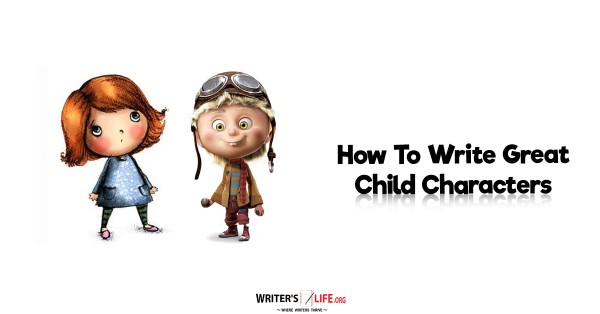
All books need to have great characters. It is the life-blood of any story. If your characters fall flat then no matter how good your plot is, readers simply won’t be able to connect wth it.
If the protagonist in your novel is a child, this task can be even trickier. Indeed, if you have any child characters in your book that play a significant part, getting the balance right between believable and interesting is tough.
We might think we remember what it’s like to be a child, or we might have children or relatives who are children to help us gain insight into the essence of what makes children so, well, childlike. However, translating this to the page to create characters that are just as exciting and well-rounded as our grown up ones is difficult.
So what are the main things to look out for and consider when writing child characters? Let’s take a look:
Don’t make them too cute
Cutesy child characters will soon grate on your readers. If they are meant to be likeable yet they are sickly sweet all the time they’ll come across is boring, and a little irritating too.
Don’t make them too old
OK so some things that children say can strike a chord that makes them seem wise beyond their years, but if you make your child characters brimming with sage pieces of advice every time they open their mouths, they simply won’t be believable. Children should have an innocence and a playfulness about them that separates them from the grownups in your book.
Don’t make them stupid
Dumbing down children will only make them unlikeable. Of course, there can be a ‘stupid’ child in your book if that’s intentional and they serve a specific purpose. But simply writing your child characters in a way that makes them appear empty headed will again make them dull to your readers and hard to relate to.
Don’t use baby talk
There is nothing more annoying than having to read lines of dialogue in baby speak! Let your child characters talk normally and instead choose the words carefully to reflect their age.
Make them unique
Child characters should be as unique and interesting as the rest of the characters in your novel. If they all blend into one another they will be bland and easy to ignore - give them quirks, give them eccentricities, give them unusual personalities - bring them alive in your book.
Let them grow
Children should have goals, go on journeys and grow and develop too. If a child character is one of the main characters in your book then give them something to work towards and show the reader how they have changed and what they have learnt - they shouldn’t be the same by the time your book comes to an end.
Remember - children are children
As you write your child character, always ask yourself ‘would a child do this? would a child say this?’ It’s easy to slip into habits where your child characters are suddenly mature beyond their years, but as long as you keep checking in and asking those questions you can ensure they talk, act and react in an appropriate way.
Using the above tips you can write child characters who are interesting, original and entertaining too - just as all your characters should be!
Even though I haven't worked on my diary novel lately, I chose to set it in the 1980s, since that is when I grew up. As such, I have many recollections of how kids acted and how we lived before things like the Internet and cell phones. I have found myself less compelled to write something set in today's society with someone texting someone else or checking their Facebook page, even though I do all this. But I'm an adult and don't know how most teens act when doing these things.
I really want to get working more on this novel, and I want to try something else in general, but I have been too preoccupied with my memoir. It's been kind of hard to switch gears, as my mind seems set on this one thing. Do any of you writers reading my blog typically feel this way?
Any ideas you can offer for writing for kids?
2 comments:
Some excellent advice today. I have frequently been made to feel unwell by cutsie children in novels. Not an easy task I imagine to make them believable.
Great article. Great advice.
Have a good day, Jamie.
Post a Comment